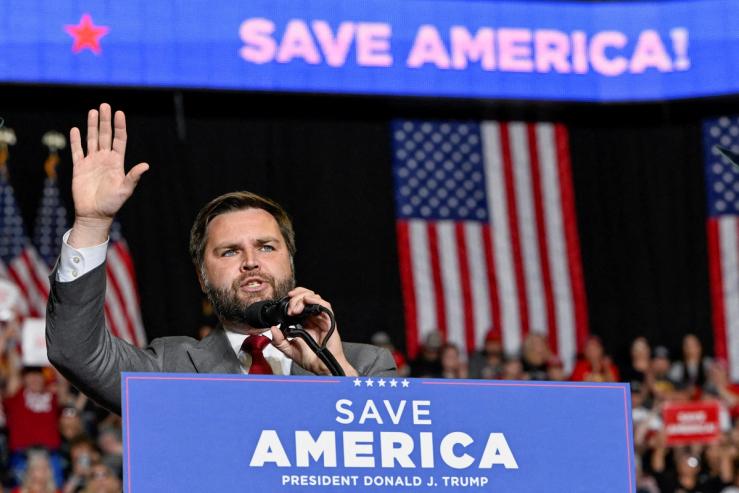The News
The Republican nominee for vice president JD Vance has built a reputation as one of Donald Trump’s most loyal supporters.
Worldwide, his support of MAGA politics and an “America First” approach to foreign policy has not gone unnoticed, raising concerns about how the duo’s isolationist tendencies could reshape world order.
Those worries are especially pronounced in Europe with one EU official telling Politico he would be a “disaster for Ukraine.” A European official who spoke to Semafor acknowledged that Trump and Vance would “go hard after China, at the expense of attention paid to Europe” but that he would be “another strong voice for increased European defense spending.”
Writing in February in the Financial Times, Vance said “The United States has provided a blanket of security to Europe for far too long,” adding that “there is frankly no good reason that aid from the US should be needed.”
The View From Ukraine
Vance’s selection has spawned some nervousness in Kyiv, given his public opposition to future funding for Ukraine as it fights Russia’s war. He has argued for focusing instead on the threat posed by China, telling Fox News yesterday Trump would negotiate a peace settlement between Ukraine and Russia to bring the war “to a rapid close.” “I think we should bring him” to Ukraine, Maria Mezentseva, a Ukrainian member of parliament, told Semafor when asked about Vance’s position. “That’s how we usually succeed to change someone’s mind.”
The View From Hungary
A top aide for Hungary’s Prime Minister Viktor Orbán welcomed Vance’s nomination and said that a “Trump-Vance administration sounds just right.” Orbán and Trump are friendly, and Vance has previously voiced support for the Hungarian strongman, too, and in particular, his decision to appoint political allies to lead public universities, a move that could help shape curriculums along party lines.
The View From The UK
Responses to Vance’s nomination were mixed. Labour Deputy Prime Minister Angela Rayner said she “looked forward” to working with him should Trump return to the White House, while also decrying Vance’s suggestion that the UK is the first “truly Islamicist country that will get a nuclear weapon.” Brexiteer and Reform Party leader Nigel Farage, meanwhile, said Vance was a “great pick.”
The View From Germany
Vance’s Hillbilly Elegy memoir once reportedly moved Chancellor Olaf Scholz to tears. In an interview with Germany’s Süddeutsche Zeitung newspaper last year, Scholz said that he often seeks out authors with opposing conservative viewpoints because he “would be missing out on the real adventure of reading,” if he only stuck to authors with politics he agreed with. However, Scholz added it is “no longer possible” to discuss the “injustices of American society” with Vance since he became a staunch ally of Trump.
The View From France
Trump had an opportunity to “rethink his strategy” after his assassination attempt and prioritize political unity, French newspaper Le Monde wrote. But choosing Vance is “a return to the roots” of Trumpism, the paper argued: The prioritization of a brand of populism that is supported by a section of the working class that feels “tormented by deindustrialization” and “disoriented” by what they perceive as an “overly permissive society” that has left them behind.
The View From China
Many in China’s tech community are excited about Vance’s background in venture capitalism. Vance will help “push the technology industry further into the heart of Washington,” wrote ChainDD, a tech and crypto WeChat blog. And because of his pro-crypto voting record, Vance will be “more crypto-friendly than any previous executive in the White House,” which could help fortify business relationships with other crypto hubs, like Hong Kong.
The View From Mexico
As one of the most vocal proponents of Trump’s border policies, Vance is a “MAGA King who has declared war on drug trafficking,” wrote Mexico’s El Universal newspaper. Despite representing Ohio, a non-border state, Vance has become a poster child for the immigration culture wars, the paper argued, cementing that reputation in one infamous campaign ad where he pointedly asked voters: “Do you hate Mexicans?”

